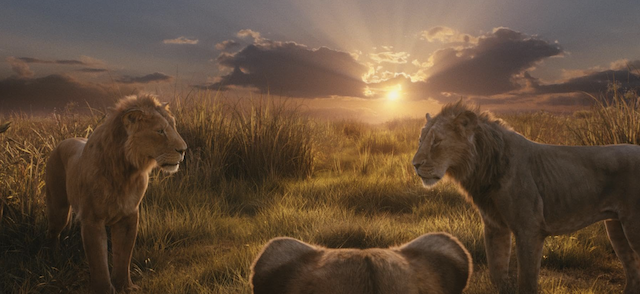
@Courtesy of Disney
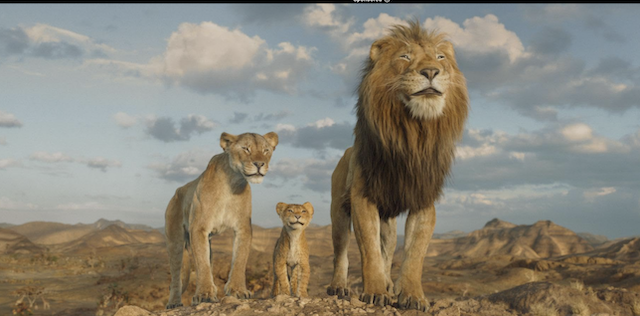
@Courtesy of Disney
Q: How did the journey of Mufasa: The Lion King start for you?
Barry Jenkins: When I first read the script by Jeff Nathanson, I realized I had assumed so many things about how one becomes a king, about how one becomes James Earl Jones. It was really cool to read Jeff’s script and see that all these things that we’ve concretized over 30 years about how someone becomes the perfect father, the perfect leader, my assumptions of what that path was, was just totally not correct. I could actually relate more to someone who grew up far outside, the path leads you to become a great leader. I found myself closer to Mufasa, I realized audiences would find themselves closer as well if we did our job, trying to build a life that people could see themselves in.
Q: Why do you think Mufasa is so beloved around the world?
Aaron Pierre: That’s a really beautiful question. This is a shared thing, my introduction to James Earl Jones’s original portrayal of Mufasa, it just felt like his voice was so warm. It was so comforting, full of strength, clarity. That’s what I connected to the first time I ever engaged with it. The reason the character is so beloved is because he radiated an essence of love and unity. We all crave that in our own respective lives and in our own personal communities or in our global community. I was very nervous to contribute to the beautiful legacy that is Mufasa that the great James Earl Jones originated. Hopefully I was able to serve that in a small way.
Q: How did you bring Taka to life knowing what you knew about his future?
Kelvin Harrison Jr.: The biggest thing was not to judge him. I enjoyed him so much in the original version. He’s so playful, so lively. All those characteristics still remain true in this movie. During my first conversation with Barry, he was like: “Stay present, stay in the moment with Taka and allow his instincts and his natural tendencies and his love for life and people to shine through. I just played it with that, threw in a nice voice and just saw what happened.
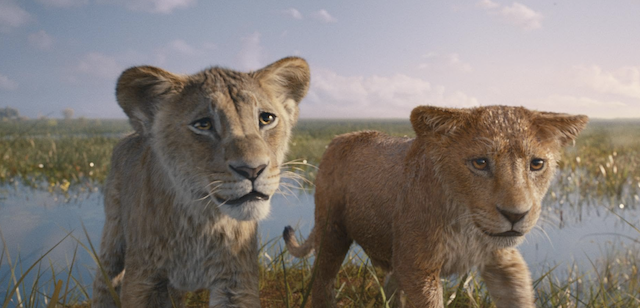
@Courtesy of Disney
Q: Can you describe the DNA of the music of The Lion King? How do these new songs embrace that but also showcase your own sensibilities?
Lin-Manuel Miranda: The original The Lion King ’94 is an immortal soundtrack. It’s like no skips from Elton John and Tim Rice, and then Hans Zimmer’s incredible score. If it had just been that first movie, I would have been very intimidated, but there’s been an entire world of Lion King music. There is the incredible Broadway musical, one of the longest running musicals on Broadway. There’s Beyonce’s album, The Gift, which expanded the vocabulary of what a Lion King song could sound like. It felt like an amazing world to play in. My secret weapon was Lebo M., who is the first voice you hear on that original film. I knew his choral arrangements and his incredible choir were going to raise whatever I wrote to the next level. Working with him and Mark Mancina, who I worked with on Moana, I knew I had incredible talent in my corner that would help us get to that Lion King level.
Q: The dynamic between Mufasa and Scar is central to the story. How did you both work together to develop the sibling rivalry and camaraderie we see in the film?
Aaron Pierre: Wow. This picture was the first time that Kelvin and I had the opportunity to work together. Beyond that point, we had the great privilege of portraying heroes of ours, Dr. Martin Luther King Jr. and Malcolm X. Interestingly, on both of these projects, we didn’t spend an enormous amount of time in the same room. Our friendship and our brotherhood actually developed 90 percent of that context of work. That’s what we engaged with, what we drew from to find the brotherly bond and the familiarity that these two brothers would have.
Kelvin Harrison Jr.: Three years of doing the same movie helped too. It tends to kind of get a rhythm going. I knew his Mufasa. He knew my Taka.
Q: What did initially go through your mind when you needed to find a new version in something that originally existed, The Lion King animated film?
Barry Jenkins: It all starts with living in what it is about the legacy that you’re walking in. There’s a reason why people have been in love for 30 years with The Lion King. Once I diagnosed what that was, it was just clarity of emotion and clarity of purpose. In Jeff Nathanson’s script, those things were there in spades. When I first read the script, I realized there was such a depth in so many of these characters that hadn’t been on the periphery. I saw all of this clarity of intent, clarity of purpose, honesty of emotion: whether you’re a four year old or 104 year old, there’s something in The Lion King for you. And all those things were present in Mufasa.
Q: You said you read the script for Mufasa: The Lion King, and knew exactly where the songs should go. How did those songs come to you, and how was it to choose which characters would sing and when?
Lin-Manuel Miranda: 90 percent of it was in the script. Jeff took such care to make space for the music, to carry the ball and carry the emotional real estate. I’m amazed at some of the things music got to do in this movie. Most of the song titles actually began as lines of dialogue referenced reading that script. There was one number that wasn’t in the script that I pitched to Barry: we had this incredible villain in Kiros, voiced by Mads Mikkelsen. Having Mads as your villain and not make him sing in a musical is malpractice. Barry let me write him a big old tune, and I’m listening to dancehall. I know those are two different tastes, but I swear they’re gonna taste great together. That was really a lot of fun.
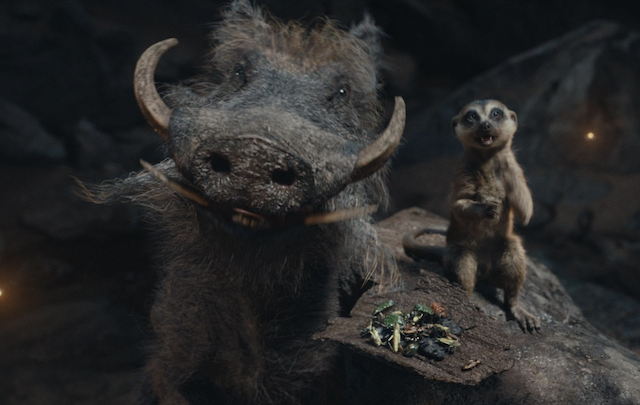 @Courtesy of Disney
@Courtesy of Disney
Q: How do you think Mufasa will impact the generation that watched The Lion King as children or teenagers?
Barry Jenkins: I am the generation that watched it as children and teenagers. If you’ve seen the film Moonlight, that’s the world I come from. I assumed someone who came from that world could not walk the same path as someone like Mufasa. When I first read the script, I realized Mufasa grew up with a found family the same way that I did. There were so many ways I was able to see myself in Mufasa through this telling of the story. It was the key to figuring out how to make this film.
Q: After the first trailer premiered, many people became team Scar when it was revealed that Mufasa wasn’t supposed to be the king. How was it to see that response from people for you?
Kelvin Harrison Jr.: It’s really cool. It’s a nice opportunity for people to pull back the curtain a little bit and reassess that original first interaction with Scar. No one’s born a villain. Anybody who’s angry is probably hurt at some point. I like the fact that everyone having the dialogue is probably gonna examine themselves a little bit, some of their preconceived notions around their enemies.
Q:What aspects of Mufasa’s journey do you think will surprise fans the most?
Aaron Pierre: What surprised me the most when we met Mufasa, he is the king. He has wisdom. He’s the pinnacle of his community. He’s really unshakable. But we learn in this that there was a journey to that point. And the beginning of that journey involved being separated from his family, becoming an orphan, being ostracized, being degraded, dismissed. And despite all of those circumstances, embracing everything that is and channeling it into something that elevates himself, elevates the people around him. I imagine that if I was a young person watching this, I would draw inspiration from that.
Q: What inspiration did you take from the iconic soundtrack from the Lion King, 1994, the songs by Elton John?
Lin-Manuel Miranda: I knew I wanted Lebo M’s voice and talent on the tracks I was writing. Everything I wrote bumped up a level when he got in the studio and started playing around with the tunes, adding harmonies to them. I only allowed myself one Hans Zimmer quote: it’s five notes when Mufasa’s alone in the middle of I Always Wanted a Brother, that’s all you get. I felt like there’s a direct line between Mufasa searching for his ancestors and Simba ascending the throne in the ’94 original film. I wanted to connect those dots.
Q: Do you remember the first time you saw the 1994 Disney classic, and what impact it had on you?
Barry Jenkins: I was babysitting my two nephews for my sister, I remember reaching around for the VHS, which one was going to calm the children down. The Lion King was the one they would watch most often. At first, I thought they were watching it, and then I realized I was watching it with them. The deepest impression that made was, they’re processing very complex emotions for the first time, but they were doing it in such a safe way. Then three minutes later, you’re singing and laughing and dancing around. I thought it was a really powerful magic trick. I thought it was just something quite moving.
Lin-Manuel Miranda: My first experience was the trailer, which is the greatest flex in the history of marketing. Disney just showed us the first four minutes of the movie. I was in the theaters to see something else and then you see that hand-drawn sunrise and hear Lebo’s voice. And they just played the Circle of Life, and just like, boom, The Lion King.
Q: : How does it feel to continue the legacy of James Earl Jones bringing Mufasa to life?
Aaron Pierre: Even before I knew I would be given the opportunity to be welcomed into this family to tell this story, even way before I became professional, James Earl Jones was an enormous inspiration for me. He has always been at the top of the mountain. I’ve always observed him. It’s very nerve-racking because of the place he holds in my heart, but in the end those nerves and that fear served me because this is an adolescent version of this character. This Isn’t the adult king who’s running things. He’s figuring out his identity. It feels like they’re wearing shoes that are two sizes too big. I felt like that, it actually served as something that propelled me forward. It was a beautiful experience.
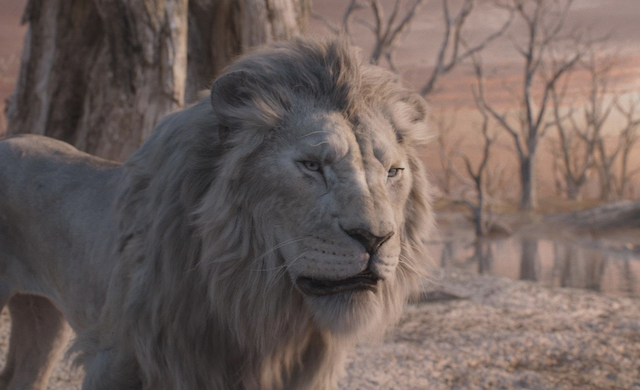
@Courtesy of Disney
Q: How are you all similar to your characters?
Aaron Pierre: The thing that I connect with the most is how hard he is on himself. He expects himself to have the answers to questions he hasn’t had the life experience to answer. I’ve done that for a vast majority of my life.
Kelvin Harrison Jr.: I would say Taka’s curiosity. He asks a lot of questions, pretty nosy. I’m in everyone’s business pretty much all the time. He’s just as lighthearted and just curious about everything that’s going on.
Q: Did you have to put yourself in a child’s shoes when composing for films like this? And if so, how did you do that?
Lin-Manuel Miranda: That’s like that artist’s whole gig. I have two little kids. Their imagination is so ridiculously limitless, when everything’s possible and everything is pretend. The job of the artist is to protect that instinct, protect that impulse that we’re all born with. When I’m writing, the first audience I’m trying to please is the kid who saved VHS cassettes of Little Mermaid or The Lion King. I’m always trying to create the sense of wonder that I was blown away by when I saw these movies as a kid.
Q: What’s the most important message you hope people take out of this film?
Barry Jenkins: I love answering this question, but Lin has the best answer.
Lin-Manule MirandaL: I’ve got two kids and they’re obsessed with who’s the good guy and who’s the bad guy, like most kids.They want to understand the world. This movie leaves you to be able to have a conversation with the nuance of, no one’s born a good guy, no one’s born a bad guy. We have good choices and bad choices. Sometimes our experiences lead us to make the wrong choices. We have good and bad impulses, no one’s just good or bad. To be able to have that kind of conversation with your kids is so joyous, when a work of art allows that conversation, where you can use these characters as a way to talk about the real world. This movie does that beautifully.
If you like the press conference, share your thoughts below.
Check out more of Adriano’s articles.
Here’s the trailer of Mufasa: The Lion King:

